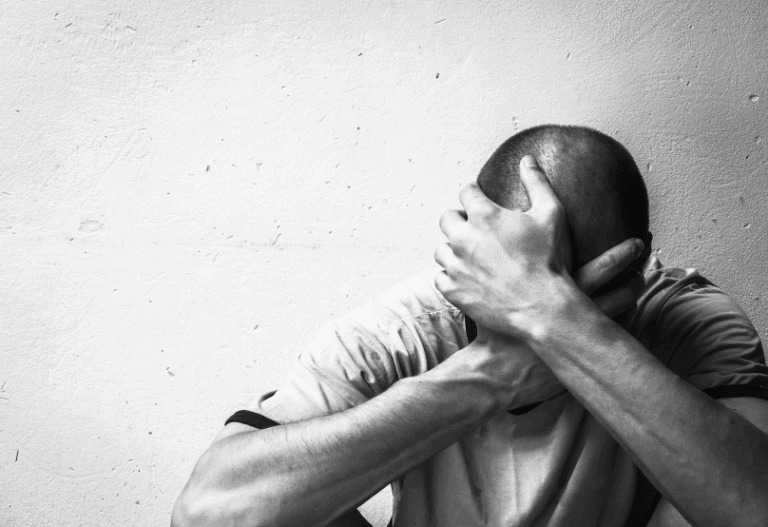10 Signs You May Have PTSD
Post-traumatic stress disorder (PTSD) is a condition that hits people after a traumatic event, such as a car accident, natural disaster, violent crime, or military combat. It can affect anyone who has been exposed to trauma, no matter how old they are or what type of person they are. If you’re wondering if you might have PTSD, here are some of the most common signs you might be suffering from the condition.
- You’re Always On Edge
Being on edge can be a sign of PTSD. You may be hyperaware of your surroundings and feel anxious and worried about things that have no reason to alarm you. You may also have trouble falling asleep, or feel somatic, or your gut, which is the involuntary part of your body. All of these are signs that you’re on edge.
- You Have Nightmares
People who suffer from PTSD may have recurring nightmares. Your brain is trying to process what happened to you during the trauma, so it may create nightmares that help you process the event. Many people also have nightmares as a result of past traumas, and they don’t mean to have them at all.
If you have nightmares that seem connected to the trauma you experienced, talk to your doctor about them. But if you have nightmares that are not about the trauma, you may have PTSD. Nightmares are a normal response to trauma, but if they happen too often, or you keep having them when your brain is not trying to process trauma, then you may have PTSD.
- You Relive The Trauma
It’s common to feel the same way you felt during the trauma over and over again. You may feel unsafe, worried, or anxious and may even have physical signs of the trauma, like headaches or stomach pain. This is a normal response, but if you feel it all the time, it can be a sign of PTSD.
- You Feel Extreme Vulnerability
It’s normal to feel a sense of vulnerability when you have PTSD, especially around people and places that remind you of the trauma. You may feel like you have to be on guard all the time, or you may avoid being alone because you feel so vulnerable. This too is part of the brain’s natural response to trauma, and it’s something that can usually be managed with therapy.
- You Keep Thinking About The Trauma
People who have PTSD may often have intrusive thoughts about their trauma. This could mean that you keep thinking about what happened or that you keep searching your memories for answers. It could also mean that you have trouble focusing on other things. This can all be signs of PTSD.
- You Avoid Being Alone
If you avoid being alone because you feel too vulnerable, it’s a sign of PTSD. This is part of your brain’s natural response to trauma and can usually be managed with therapy.
- You Have Flashbacks
Flashbacks are when you feel like you’re reliving the trauma all over again, but it’s in the form of memories. While flashbacks are a sign of PTSD, they can still be a result of the trauma if you kept searching your memories for answers, or if you kept avoiding activities that remind you of the trauma.
- You Feel Depressed Or Vengeful
Feeling depressed about the past event that caused you to develop PTSD can be a sign that you may have the condition. You may also feel sad about being unable to change the past, or you may feel angry and vengeful toward someone else who is responsible for what happened to you.
- You Try To Overcompensate For The Condition
There’s a saying that goes, “What you resist, persists,” and it’s true. If you try to hide your symptoms, you’re going to make them worse. It’s not healthy to hide from your symptoms or pretend that you don’t have them.
It can also make you feel like a failure because you think you “should” feel better than you do. That’s not true, and it’s not helpful. Instead, reach out for help. You can’t overcome a condition like PTSD on your own, but there are people who can help you learn coping skills and treat your symptoms.
- You Feel Sad Or Numb
Sadness is a normal response to loss and grief, and it’s completely healthy. But if it lasts longer than two weeks or occurs more than two days a week, it’s a sign that you’re not okay. People who are suffering from PTSD often feel numb, like their emotions are gone.
They may feel that they’re either not sad enough or sad for the “wrong” reasons. They may also feel that the only way to feel anything is to hurt themselves or others. You might want to reach out for help before you hurt yourself or someone else because you’re not in touch with your emotions.
Conclusion
A diagnosis of PTSD can be difficult to make because there are so many symptoms that people experience that don’t fit neatly into a diagnosis. However, if you’ve been experiencing any of the above for more than a month, you should speak with a mental health professional to make sure you’re not suffering from PTSD. The sooner you get help, the sooner you’ll be able to start treating your PTSD. If you think you might have PTSD, or if you struggle with anxiety, you should talk to a therapist. There are many resources available to help with PTSD, including self-help books, online support groups, and therapy groups.
Trust Oasis Recovery
Addiction and mental health disorders can affect anyone. If you or a loved one are currently living with one of these issues, help is available! We encourage you to reach out to the professionals at Oasis Recovery to learn more about our personalized treatment programs and mental health services. Oasis Recovery was founded from firsthand experience of addiction and recovery, with a mission of providing a space where people can heal from addiction in a compassionate, creative, open-minded, and heart-centered environment. We believe recovery is always possible. Our experts work with you to design a treatment plan that fits your needs. Common treatment programs include:
- Intensive Outpatient Programs (IOP)
- Full-time Addiction Treatment on campus
- Aftercare Services
Contact us today for more information about how our programs and services can help you get your life back on track. You no longer have to struggle with this on your own. We are here to help.











